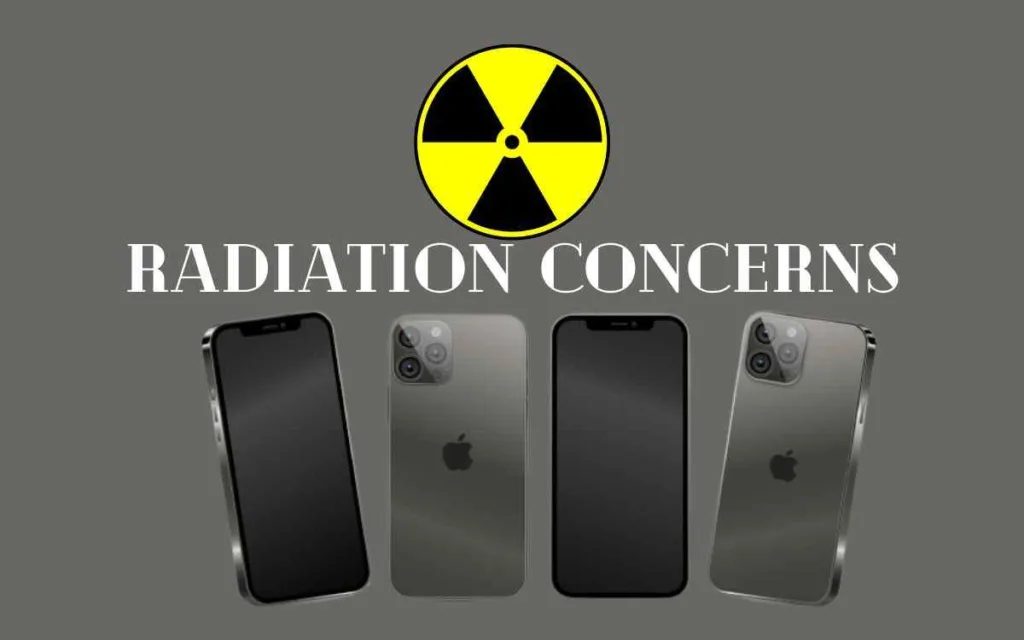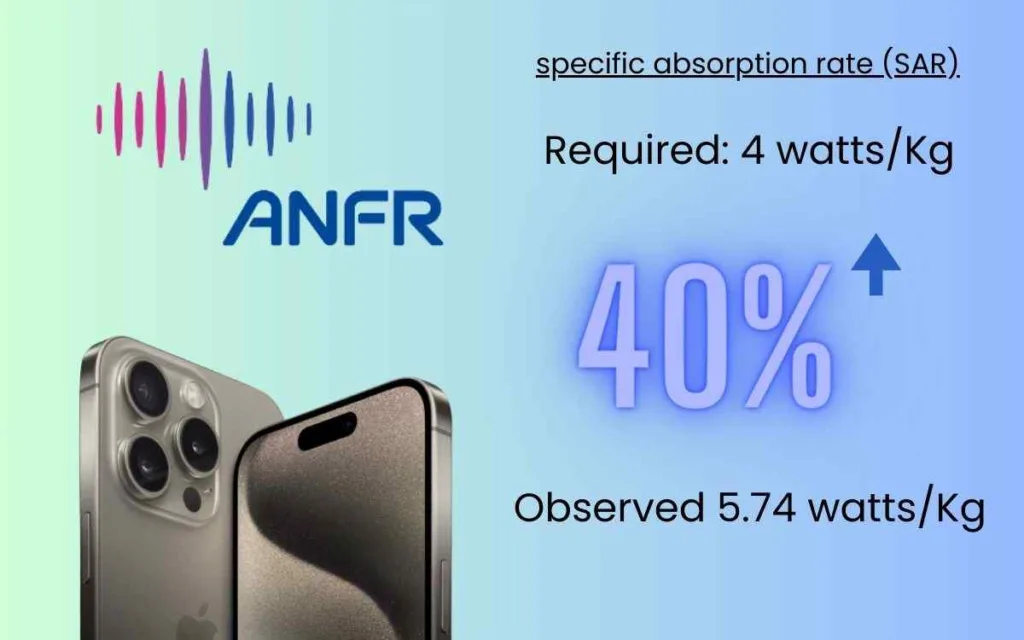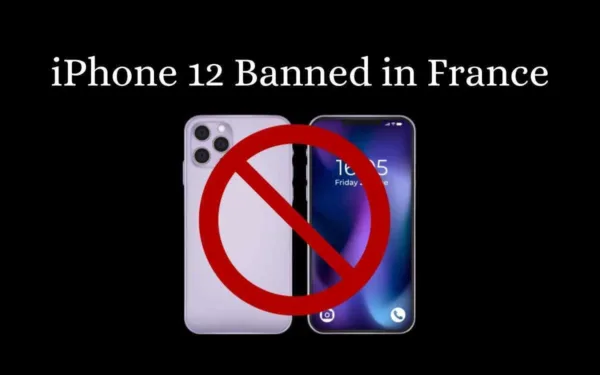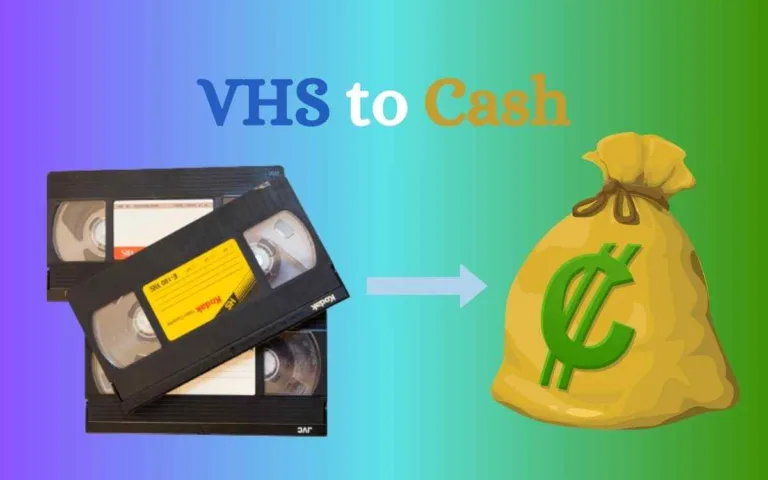France Bans iPhone 12 Sales!
France Orders iPhone 12 Sales Halt Over Radiation Concerns Amid Dispute with Apple.
In a shocking turn of events, France’s National Frequency Agency (ANFR) has demanded the withdrawal of Apple’s iPhone 12 from the market due to concerns about excessive electromagnetic radiation.

The agency argues that the iPhone 12’s radiation levels exceed European Union standards, igniting a dispute between the tech giant and French authorities.
This development has the potential to create a ripple effect across the European Union as regulators in other member states may join the investigation.
iPhone 12’s Electromagnetic Radiation Under Scrutiny
France Takes a Stand
The ANFR conducted comprehensive tests on the iPhone 12 and found that its specific absorption rate (SAR), which measures the radiofrequency energy absorbed by the human body, significantly surpasses EU standards.
Specifically, the iPhone 12 exceeded the allowed limit by more than 40%, registering a SAR of 5.74 watts per kilogram, whereas the permitted level is 4 watts per kilogram.

As a result, the agency has taken a bold step by ordering Apple to halt iPhone 12 sales in France and to update the devices currently in use.
Recall Looms Over Apple
In a recent announcement, the ANFR (Agence nationale des fréquences) has issued a stern warning to Apple, sending ripples of concern throughout the tech world.
The agency has threatened to recall every iPhone 12 sold in France unless immediate measures are taken to ensure compliance with SAR (Specific Absorption Rate) limits.
Such a recall, if it were to materialize, could spell out significant ramifications for Apple. Beyond the financial implications, the company’s reputation could take a substantial hit.
With millions of iPhone users across the globe, any move to recall a flagship product like the iPhone 12 would undoubtedly make headlines and could erode consumer trust.
This situation underscores the importance of adhering to regulatory standards, not just for Apple but for all tech giants. The battle between innovation and safety standards continues to be a tightrope walk in the ever-evolving world of technology.
Apple now faces a critical crossroads, where their response to the ANFR’s warning could shape their future standing in the industry.
Timing Coincides with iPhone 15 Launch
Interestingly, this revelation came on the very day Apple unveiled its latest iPhone 15 model, sparking questions about whether this was a deliberate attempt to divert attention from the iPhone 15 launch.
Find more HERE about iPhone 15 switching to USB-C charging cord.
Implications for Europe: A ‘Snowball Effect’
France’s digital minister, Jean-Noel Barrot, has indicated that the data and findings from ANFR’s investigation will be shared with regulatory authorities in other EU member states.
This move could trigger a domino effect, prompting other countries to investigate iPhone 12 radiation levels and potentially take similar actions against Apple.

The stakes are high, and the tech giant’s response will be closely watched.
Apple’s Response and Rebuttal
Apple has swiftly responded to the allegations, emphasizing that the iPhone 12 underwent certification by multiple international bodies.
Additionally, the company claims to have provided both internal and third-party lab results demonstrating the iPhone 12’s compliance with the French agency’s standards.
As of now, Apple has not commented further on the matter.
Is There Cause for Concern?
While the iPhone 12 was found to emit radiation levels “slightly above” the permitted threshold, it’s crucial to emphasize that; these levels are more than ten times lower than the point at which health risks become a concern.

France’s digital minister, Jean-Noel Barrot, clarified that the intention behind their actions is for Apple to adhere to their rules, rather than suggesting immediate health risks.
World Health Organization’s Perspective
The World Health Organization (WHO) has stated that, to date, there is no concrete evidence linking adverse health effects to mobile phone use.
In 2011, the WHO classified radiofrequency electromagnetic fields, like those emitted by mobile phones, as “possibly carcinogenic to humans.”
However, this classification is reserved for agents with limited or inadequate evidence of carcinogenicity in humans.
Reassurance from National Cancer Institute
Research conducted by the National Cancer Institute, a division of the U.S. Department of Health and Human Services, suggests that the radiofrequency radiation emitted by cell phones is unlikely to cause brain or other types of cancer in humans.
Furthermore, the institute asserts that the radiation levels are too low to damage DNA.
How to Check Your iPhone’s Radiation
For those concerned about their iPhone’s radiation levels, information about the Specific Absorption Rate (SAR) of cell phones produced and marketed within the past one to two years can be found on the Federal Communications Commission’s website.
>>To access this information, users can input their phone’s FCC ID number, typically located on the phone’s case or in its settings, or contact the manufacturer for details.
To Conclude
In conclusion, the dispute between France and Apple over the iPhone 12’s radiation levels has ignited a contentious debate about the safety of smartphones and their compliance with electromagnetic radiation standards.
As France’s actions potentially trigger a chain reaction across the European Union, the tech giant faces a pivotal moment in addressing these concerns and maintaining consumer trust.
Amidst the controversy, experts continue to assert that current radiation levels from smartphones pose minimal health risks, providing reassurance to millions of mobile phone users around the world.






